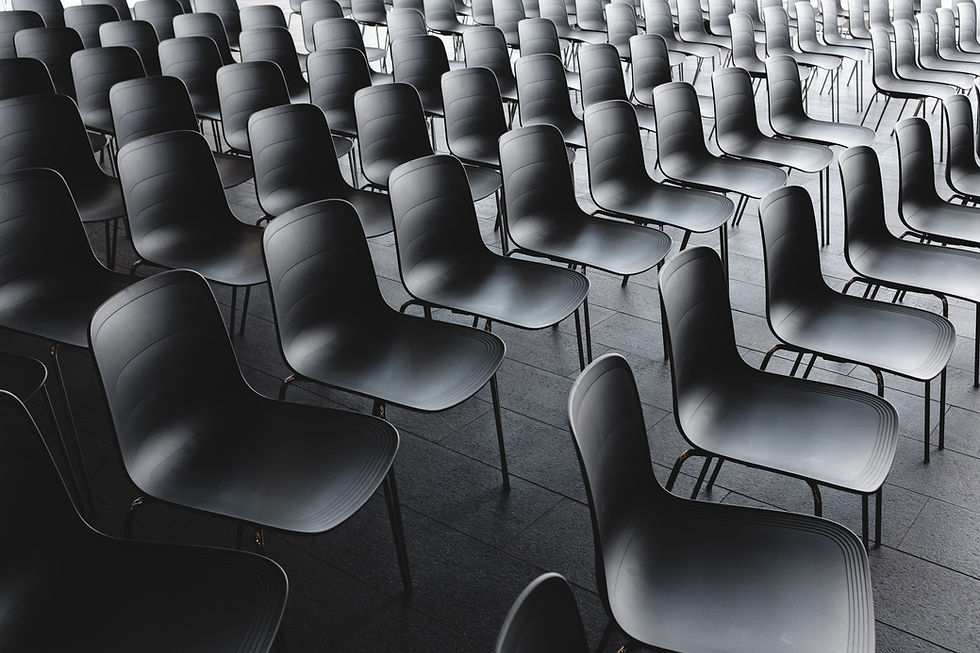BusinesDay: Hey dad, 2050 isn’t the paradise you imagined (part 2: Dystopia)
- Johan Steyn

- Jul 27, 2021
- 3 min read
Updated: Nov 1, 2021

By Johan Steyn, 27 July 2021
Published by Business Day: https://www.businesslive.co.za/bd/opinion/columnists/2021-07-27-johan-steyn-hey-dad-2050-isnt-the-paradise-you-imagined-part-2-dystopia/
Author’s note: In this two-part series, I imagine a letter my son would write to me in the year 2050. The smart technology era brings with it tremendous promise for a better life on earth, but there are also dire warnings that it could affect humanity with tragedy unimagined. In last week’s article, I imagined that technological change would have resulted in a utopian world. This week’s article is based on the converse conclusion.
Hey dad, it saddens me to say that I am glad you are not with us anymore. I celebrated my 36th birthday this week. You were always going on about the future of technology and how society should take it seriously. Despite the fact that you and countless others worked hard to sound a clarion call, warning us about the dangers of technological advancements, I am sad to say that we now live in a terrible and unimaginable world.
The warning signs have been there for many decades. Back in 2020, the final report of the Presidential Commission on the Fourth Industrial Revolution was officially gazetted. The commission’s recommendations were largely ignored by government agencies and large businesses. SA lost the technological race because we did not even enter the arena.
The smart technology era had the promise of making life better for most people. Our dusty township streets were always filled with children with ideas and dreams, many with great potential and intellectual curiosity.
We now live in a country of technological dictatorship. We all have computer chips implanted in our bodies. Originally the government promised us that these implants would protect us from human trafficking and that our parents and the police would be able to find us wherever the criminals would hide us. We were also made to believe that the implants would monitor our health and that they would track early signs of cancer or dementia, resulting in preventative treatment. The possibilities were vast.
With great power comes great responsibility. Our government found ways to track us and to control us. The implants can read our brain functions and therefore even our thoughts are monitored. A friend reminded me of a book that you always told me about (Orwell, was it?) where the thought police and big brother were always watching.
Everywhere I go my face is recorded and tracked. I am not able to find work or even buy food if my rating on the government’s algorithmic obedience training system is not sufficiently adequate.
Most people are without work. Almost every industry has been automated. Only a small part of our population is digitally literate and able to function in an economy of digital exclusion. For the small number of jobs that remained after the technological devastation, our government decided to fill it largely with outsiders. The Chinese are now our technological masters. They subjected our beautiful country to one of its many technological exclusion zones across the world. Their efforts at technological colonisation burned our potential on a grand scale in a policy of scorched earth robotic dehumanisation.
Many of us wonder why the government of the day allowed this to happen. The smart technology era promised the employment and social upliftment of all people in our country. It was only a few years ago that leaked documents revealed the scale of the government’s perpetual fear of losing power.
Even in your day, dad, the ruling party lost support among the economically emancipated. Their power base was guaranteed by social grants to the very poor — the majority of our people. No wonder they were not really interested in upskilling and employment initiatives. Our leaders decided to ignore the advancing storm, they kept most of our people poor, and they allowed a foreign people to become our masters.
• Johan Steyn is chair of the Special Interest Group on Artificial Intelligence and Robotics with the Institute of Information Technology Professionals of SA. He writes in his personal capacity.






Comments